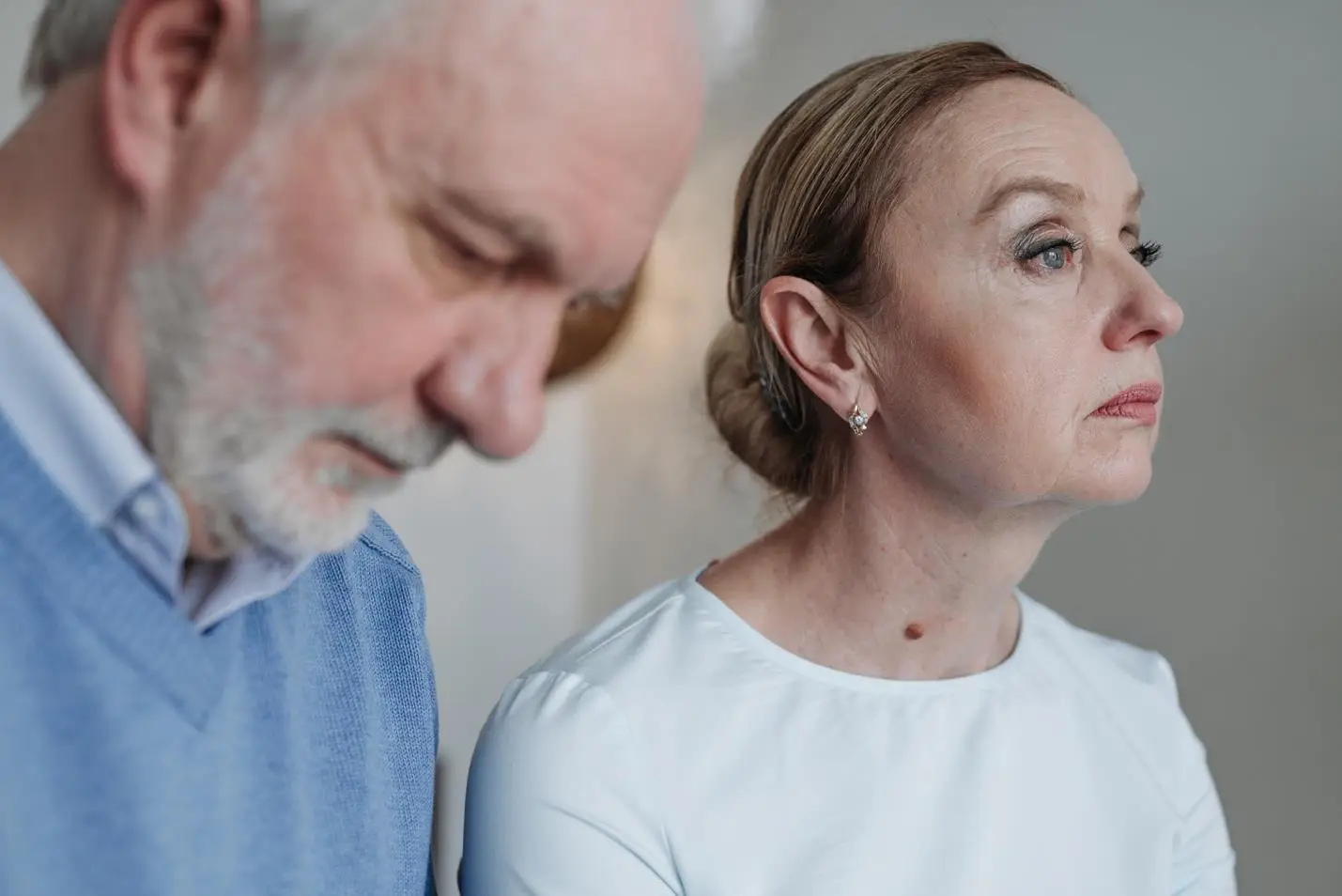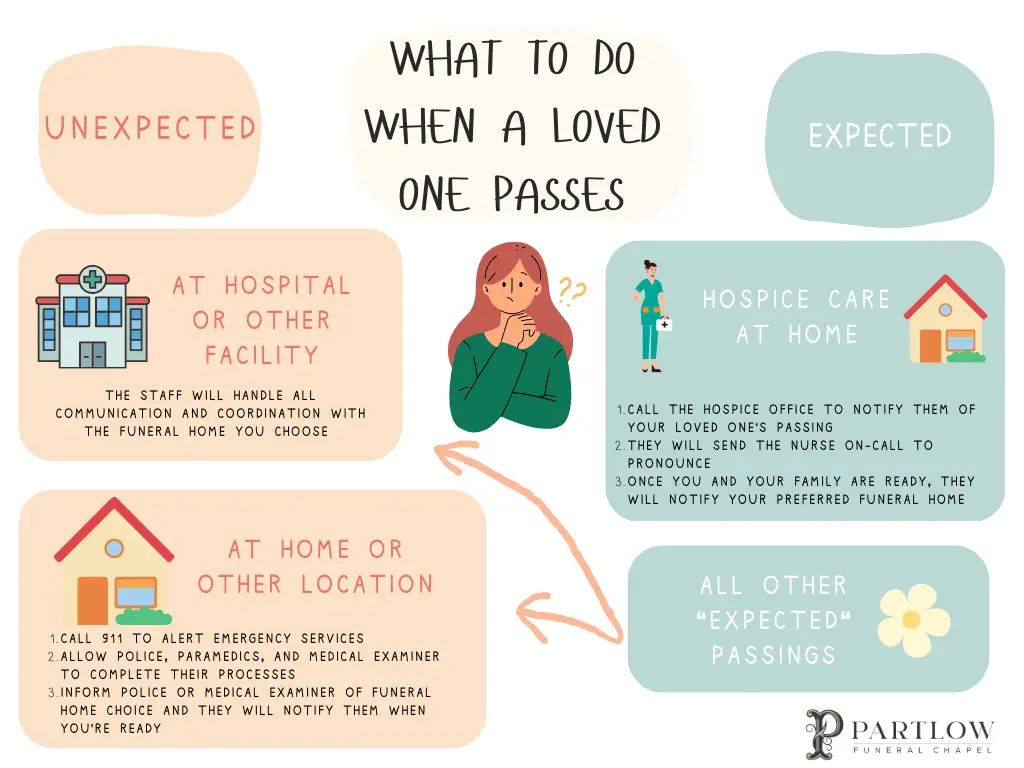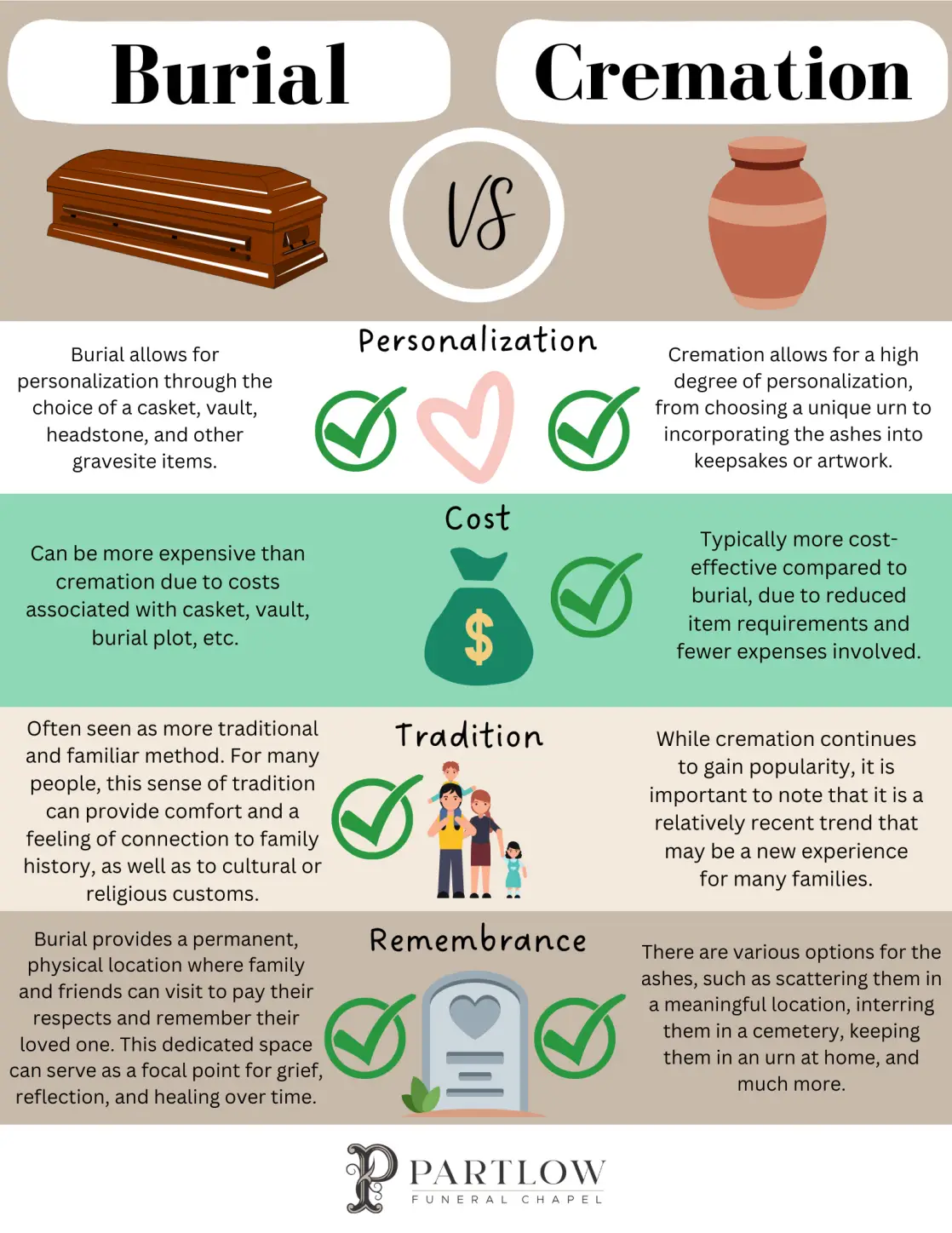What to Do Immediately After a Loved One Passes Away
Losing a loved one is an incredibly difficult and emotional experience. It can leave you feeling lost, overwhelmed, and unsure of how to navigate forward. During these moments, it's crucial to have the right support and guidance to ensure necessary steps are taken for the well-being of those left behind, as well as to honor the memory of the deceased. That's why we've created this comprehensive guide to help families through the immediate steps after losing a loved one.

In this article, we will explore various situations that you may face, including expected vs. unexpected deaths, death while on hospice care, and cases involving autopsy. By addressing common questions and concerns, we hope to provide clarity and ease some of the stress that comes with making important decisions during this challenging time.
Taking the First Steps
When faced with the loss of a loved one, it's natural to feel overwhelmed by the various tasks and decisions that need to be made. The initial steps can differ depending on the circumstances surrounding the death, and understanding what to do in each situation can help provide some structure in these unfamiliar moments. In this section, we will explore the immediate steps to take following the loss of a loved one under those different circumstances.
Unexpected Death

The loss of a loved one unexpectedly can be difficult in many ways. Not only are you dealing with the initial shock and grief that comes with losing someone in this way, but also the lack of ability to prepare can contribute to feelings of overwhelmingness and confusion
Unexpected Death at Residence
1. The first step after discovering a loved one who you suspect has passed is to call 911. This will alert emergency services to the scene including EMTs & paramedics, police, and in most cases, the medical examiner.
2. Once emergency services arrive, police will secure the area while medical services assess the situation and determine the next steps. This may include attempting resuscitation or other life-saving measures if possible. If the medics conclude those efforts are no longer viable, they will usually notify the medical examiner's office of the passing.
3. During this time, you may need to discuss the circumstances surrounding the death with the police, explaining how the situation unfolded and answering any questions they may have. Once the medical examiner arrives, they will take the necessary steps to determine if the death requires further investigation through an autopsy, or if the death could be explained through natural causes.
- Autopsy: If the medical examiner determines that an autopsy will be required, your loved one will be transferred to the medical examiner's office for this to take place. Once the examination is complete, the ME office will reach out to the next of kin and ask their preference for which funeral home to call to take care of their loved one. This process can vary in time depending on each situation.
4. If the death does not require further investigation, the medical examiner will usually ask for your preference of a funeral home to call to retrieve your loved one. In this situation, if you need additional time with the deceased or are waiting for other family members to arrive, just let the examiner know and they can delay their call to the funeral home until you and your family are ready.
Unexpected Death at a Hospital or Nursing Facility
With an unexpected death occurring at a hospital or facility, the steps are a little different. Usually, if the death occurred due to a medical event, the staff at the hospital or facility will handle the pronouncement of death, without involvement from the police, paramedics, or medical examiner's office. Once the death has been confirmed, the staff will allow the family time to be with the deceased before notifying the funeral home of choice. The facility may have different processes and procedures they must go through before releasing the body, which can delay the release. In some cases, where the death occurs unexpectedly in an emergency room setting, the medical examiner may be notified to consult on the cause of death. In these cases, they may require an autopsy to be performed, which would be similar to the process mentioned above.
Expected Death
Although losing a loved one in an expected way can provide an opportunity to say goodbye and prepare, the impact of the death can be just as emotionally difficult, bringing the same sense of confusion on where to turn next.
Hospice
If your loved one passed while on hospice care, your responsibilities can depend on where your loved one passed.
- If they passed while at a hospice or nursing facility, the steps are very similar to those at a hospital or other facility. The staff will pronounce the death and then give the family time with the deceased before calling their preferred funeral home.
- If your loved one passed on hospice care while at home:
1. The first step is to notify the hospice provider’s office. They will notify the nurse on call to come to the home, assess the situation, and pronounce the death. The nurse may call the hospice clergy, case worker, or bereavement coordinator if additional assistance is needed.
2. After the pronouncement, you and your family may need more time with your loved one before the funeral home is contacted. In this case, just let the hospice nurse know and they will usually provide as much time as you need.
Expected Death at Residence (Without Hospice)
Even if the loss of a loved one was expected due to health conditions or other complications, unless the deceased was under hospice care, the next steps would be the same as if the death was unexpected and occurred at home.
Expected Death at Hospital or Nursing Facility
The process would mostly remain the same as if the death were unexpected, but may not involve the medical examiner if it was a non-emergent situation.

Funeral Planning and Arrangements
Once you have navigated the initial steps following the loss of a loved one, it's time to consider funeral planning and arrangements. This process can be overwhelming, but having a basic understanding of the key aspects can help make it more manageable. In this section, we will provide a brief overview of choosing a funeral home and making decisions on funeral services.
Choosing a Funeral Home
Selecting the right funeral home is crucial in ensuring that the funeral process goes smoothly and according to you and your loved one’s wishes. To make an informed decision, consider the following steps:
1. Research and recommendations: Seek recommendations from friends, family, or online reviews to find a reputable funeral home in your area.
2. Consider services offered: Ensure the funeral home provides the specific services you require, such as traditional burial, cremation, or green burial.
3. Call the funeral home: Begin by contacting the funeral home to understand their approach and values. Evaluate their responsiveness, communication style, and level of support during your interactions. Do they sound empathetic and caring, or uninterested and hurried? Are they attentive to your needs and situation, or quick to talk rather than listen? You can learn a lot about how a funeral home operates and there culture in just one conversation.
Deciding on Funeral Services
Along with selecting the right funeral home, another vital decision is the method of disposition (burial, cremation, etc.) and type of service for your loved one. Here are some key considerations:
1. Burial or Cremation: It’s important to consider the preferences of the deceased and your family when deciding on the method of disposition. Another factor when making this decision are the cost associated with each.

2. Cultural and religious considerations: Be mindful of any cultural or religious customs that should be observed and how this may impact your choices.
3. Personalization: Think about how you may like to personalize the service, such as selecting meaningful music, readings, or eulogies that honor your loved one's memory.
Navigating the Initial Feelings of Grief
Dealing with the loss of a loved one is an emotionally complex journey, and the initial feelings of grief can be particularly challenging. No matter if the death was expected or not, the feelings of grief and sadness can be difficult to handle. It's essential to prioritize your emotional well-being during this time and seek support when needed.
1. Acknowledge Your Feelings
In the immediate aftermath of losing a loved one, it's normal to experience a wide range of emotions, including shock, sadness, anger, and disbelief. Acknowledging these feelings is an essential first step in the grieving process.
2. Reach Out for Support
Lean on family and friends for comfort and guidance. Sharing how your feeling with others can help you process your emotions and foster a sense of connection. You may even help someone to express there feelings of grief by opening up.
3. Give Yourself Time and Space
Allow yourself the time and space to process your emotions and grieve. Everyone's experience is different, so it's important to be patient with yourself as you navigate your unique journey of healing.
After the initial wave of emotions pass, all the responsibilities and events in the days following can cause distraction from how you’re truly feeling. It’s important to remember these feelings may return once the funeral and other events have concluded and at that point, you may need additional resources for emotional support. We encourage you to visit our blog articles dedicated to these topics and reach out if you need assistance or more information.
Conclusion
Navigating the loss of a loved one is a difficult journey, one filled with decisions that can feel overwhelming. As a family-owned funeral home, we understand the challenges you face during this emotional time and we're here to guide you every step of the way.
Whether you're looking for support in the immediate aftermath of a loss, guidance on planning a service that truly honors your loved one, or resources to help you navigate the emotional landscape of grief, we're here for you.
We invite you to reach out to our compassionate and experienced team today. We are ready to listen, answer your questions, and provide the help you need when you need it most.
Click here to contact us or call us directly at 615-444-7007. Remember, you're not alone during this challenging time - we're here to help you through.
Feel free to also explore our comprehensive range of blog articles. They are designed to provide additional insights and support during this period of grief and adjustment. We hope to be a resource for you as you navigate this journey of loss and healing.
